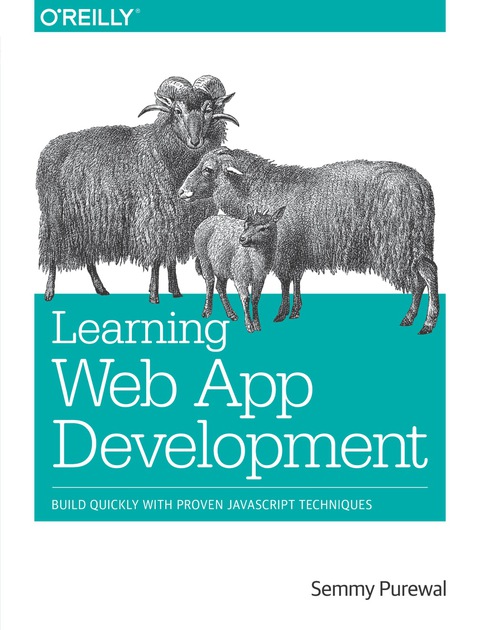Description
Efnisyfirlit
- Copyright
- Table of Contents
- Preface
- Technology Choices
- Is This Book for You?
- Learning with This Book
- Teaching with This Book
- Where to Go for Help
- General Comments on Code
- Conventions Used in This Book
- Using Code Examples
- Safari® Books Online
- How to Contact Us
- Acknowledgments
- Errata Reporters
- Chapter 1. The Workflow
- Text Editors
- Installing Sublime Text
- Sublime Text Basics
- Version Control
- Installing Git
- Unix Command-Line Basics
- Git Basics
- Browsers
- Installing Chrome
- Summary
- More Practice and Further Reading
- Memorization
- Sublime Text
- Emacs and Vim
- Unix Command Line
- More About Git
- GitHub
- Chapter 2. The Structure
- Hello, HTML!
- Tags Versus Content
-
Is for Paragraph
- Comments
- Headings and Anchors and Lists, Oh My!
- Generalizations
- The Document Object Model and Trees
- Using HTML Validation to Identify Problems
- Amazeriffic
- Identifying Structure
- Visualizing Structure with a Tree
- Implementing the Structure with Our Workflow
- Structuring the Main Content
- Structuring the Footer
- Summary
- More Practice and Further Reading
- Memorization
- Tree Diagrams
- Build the FAQ Page for Amazeriffic
- More About HTML
- Chapter 3. The Style
- Hello, CSS!
- Rulesets
- Comments
- Padding, Border, and Margin
- Selectors
- Classes
- Pseudoclasses
- More Complex Selectors
- Cascading Rules
- Inheritance
- Layouts with Floats
- The clear Property
- Working with Fonts
- Resetting Browser Inconsistencies
- Using CSS Lint to Identify Potential Problems
- Interacting and Troubleshooting with the Chrome Developer Tools
- Styling Amazeriffic
- The Grid
- Creating the Columns
- Adding and Manipulating Fonts
- A Few More Modifications
- Summary
- More Practice and Further Reading
- Memorization
- CSS Selectors Practice
- Style the FAQ Page for Amazeriffic
- Cascading Rules
- Responsiveness and Responsive Libraries
- Chapter 4. The Interactivity
- Hello, JavaScript!
- Our First Interactive App
- The Structure
- The Style
- The Interactivity
- jQuery Generalizations
- Setting Up a Project
- Comments
- Selectors
- DOM Manipulation
- Events and Asynchronicity
- JavaScript Generalizations
- Interacting with JavaScript in the Chrome JavaScript Console
- Variables and Types
- Functions
- Selection
- Iteration
- Arrays
- Using JSLint to Identify Potential Problems
- Adding Interactivity to Amazeriffic
- Getting Started
- The Structure and Style
- The Interactivity
- Summary
- More Practice and Further Reading
- Memorization
- jQuery Plug-ins
- jQuery Selectors
- FizzBuzz
- Array Practice
- Project Euler
- Other JavaScript References
- Chapter 5. The Bridge
- Hello, JavaScript Objects!
- Representing Playing Cards
- Generalizations
- Communication Between Computers
- JSON
- AJAX
- Accessing an External JSON File
- Overcoming Browser Security Restrictions
- The getJSON Function
- A JSON Array
- So What?
- Getting Images from Flickr
- Adding a Tags Feature to Amazeriffic
- The map Function
- Adding a Tags Tab
- Building the UI
- Creating an Intermediate Tags Data Structure
- Tags as Part of Our Input
- Summary
- More Practice and Further Reading
- Flickr Slideshow
- Object Practice
- Other APIs
- Chapter 6. The Server
- Setting Up Your Environment
- Installing VirtualBox and Vagrant
- Building Your Virtual Machine
- Connecting to Your Virtual Machine with SSH
- Hello, Node.js!
- Mental Models
- Clients and Servers
- Hosts and Guests
- Practicalities
- Hello, HTTP!
- Modules and Express
- Installing Express with NPM
- Our First Express Server
- Sending Your Client App
- Generalizations
- Counting Tweets
- Getting Your Twitter Credentials
- Connecting to the Twitter API
- What’s Happening Here?
- Storing Counts
- Modularizing Our Tweet Counter
- Importing Our Module Into Express
- Setting Up a Client
- Creating a Server for Amazeriffic
- Setting Up Our Directories
- Initializing a Git Repository
- Building the Server
- Running the Server
- Posting Information to the Server
- Summary
- More Practice and Further Reading
- Installing Node.js Locally
- JSHint and CSS Lint via NPM
- Generalizing Our Tweet Counter Code
- Poker API
- Chapter 7. The Data Store
- NoSQL Versus SQL
- Redis
- Interacting with the Redis Command-Line Client
- Installing the Redis Module via a package.json File
- Interacting with Redis in Our Code
- Initializing the Counts from the Redis Store
- Using mget to Get Multiple Values
- MongoDB
- Interacting with the MongoDB Command-Line Client
- Modeling Data with Mongoose
- Storing Amazeriffic ToDos
- Summary
- More Practice and Further Reading
- Poker API
- Other Database References
- Chapter 8. The Platform
- Cloud Foundry
- Creating an Account
- Getting Your App Ready for Deployment
- Deploying Our App
- Getting Information About Your Apps
- Updating Your App
- Deleting Apps from Cloud Foundry
- Dependencies and package.json
- Binding Redis to Your App
- Binding MongoDB to Your App
- Summary
- More Practice and Further Reading
- Poker API
- Other Platforms
- Chapter 9. The Application
- Refactoring Our Client
- Generalizing Meaningful Concepts
- AJAXifying Our Tabs
- Ridding Ourselves of Hacks
- Handling AJAX Errors
- Refactoring Our Server
- Code Organization
- HTTP Verbs, CRUD, and REST
- Setting Up Routes by ID
- Using jQuery for put and delete Requests
- HTTP Response Codes
- Model-View-Controller
- Adding Users to Amazeriffic
- Building the User Model
- Building the User Controller
- Setting Up Routes
- Improving Our ToDo Controller Actions
- Summary
- More Practice and Further Reading
- Removing ToDos
- Adding a User Admin Page
- Views Using EJS and Jade
- Build Another App
- Ruby on Rails
- Index
- About the Author






